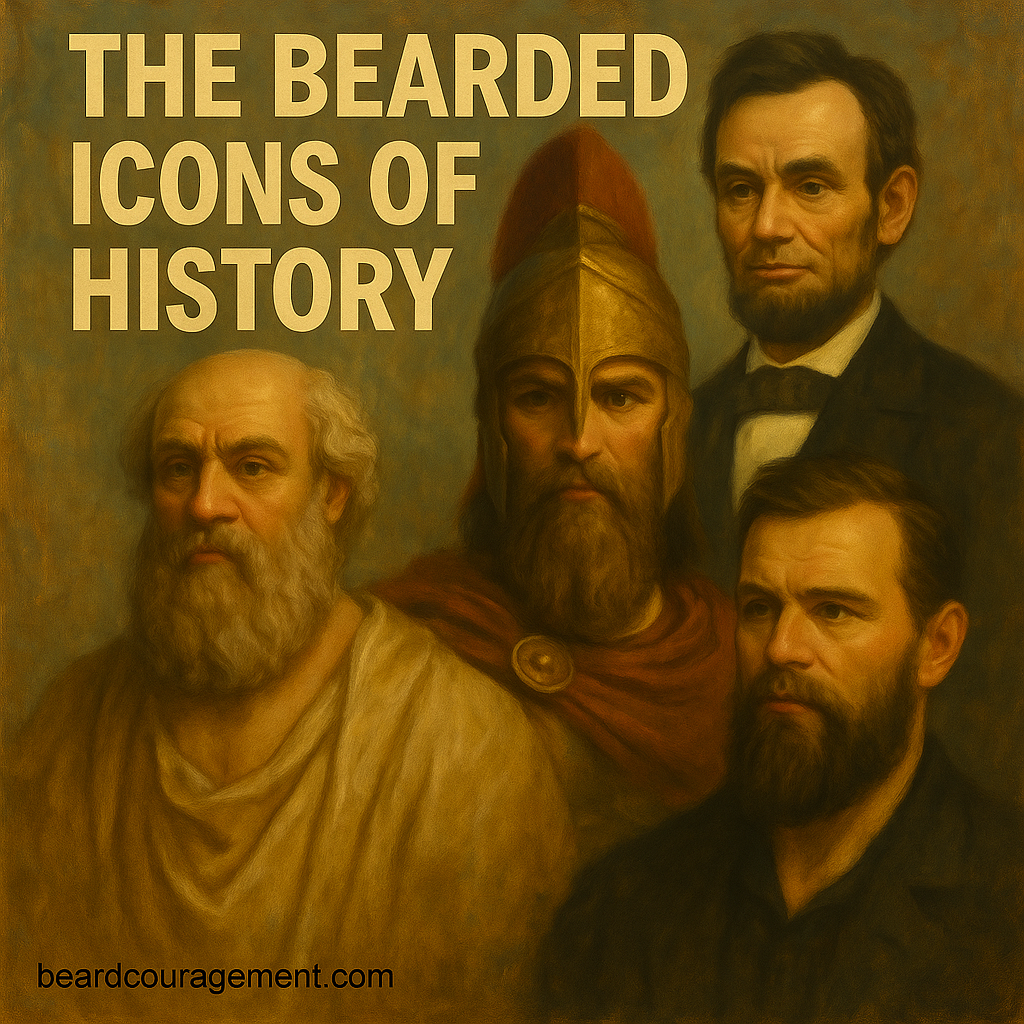
Throughout history, the beard has symbolized wisdom, strength, and identity. From philosophers to warriors and leaders, bearded men have left their mark on the world — not only through their achievements but through the timeless presence of facial hair that defined eras, cultures, and character.
Ancient Wisdom: The Philosophers’ Beards
In ancient Greece, the beard was a sign of intellect and virtue. Thinkers like Socrates, Plato, and Aristotle wore their beards as symbols of knowledge and discipline. In their culture, shaving was often seen as superficial, while beards reflected depth of mind and maturity.
Cultural significance: A beard was a mark of honor, philosophy, and reflection.
The Warriors and Kings
Across empires, beards became synonymous with power and authority.
- Leonidas of Sparta embodied courage and leadership — his thick beard representing warrior tradition.
- Viking chieftains braided their beards as emblems of strength and fearlessness in battle.
- Alexander the Great, though famously beardless himself, influenced later rulers who used facial hair to project dominance and maturity.
Cultural significance: The warrior’s beard was both armor and identity — a mark of respect and intimidation.
The Religious and Spiritual Icons
From prophets to monks, beards have carried deep spiritual symbolism.
- In Judaism and Islam, the beard represents devotion and divine respect.
- Christian mystics and saints often wore beards as a sign of humility and renunciation of vanity.
- Eastern sages — from Hindu rishis to Buddhist monks — viewed beards as symbols of enlightenment and wisdom.
Cultural significance: Beards bridged the physical and spiritual, embodying purity, patience, and piety.
The Renaissance and Enlightenment Era
During the Renaissance, clean-shaven looks became fashionable among European elites, but some great minds held onto tradition. Leonardo da Vinci’s flowing beard became as iconic as his art — a visual metaphor for wisdom, creativity, and independence.
Later, Charles Darwin would revive the beard’s scholarly image in the Victorian era, pairing it with intellect and curiosity.
Cultural significance: The beard evolved from rebellion to refinement — a symbol of genius and individuality.
The Modern Icons
Fast forward to recent centuries, and beards have continued to represent strength and rebellion in different forms:
- Abraham Lincoln redefined political authority with his signature chin curtain.
- Ernest Hemingway embodied rugged masculinity and artistic depth.
- Che Guevara turned the revolutionary beard into a global symbol of defiance.
Cultural significance: Beards became statements of independence, creativity, and conviction.
Why Beards Endure Through Time
No matter the century, the beard remains a universal expression of identity. It transcends culture and class, representing a man’s character and confidence. From the philosopher’s patience to the warrior’s courage, beards have shaped how history remembers men who led, created, and inspired.
Key Takeaways
- Beards have symbolized wisdom, power, and spirituality across cultures.
- From Socrates to Lincoln, great leaders and thinkers used beards to express individuality.
- The beard remains a timeless emblem of strength and self-expression.
